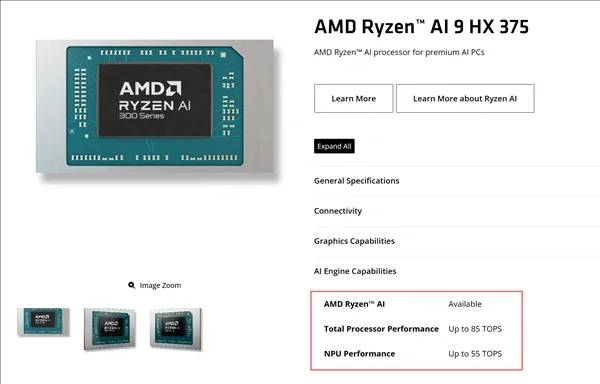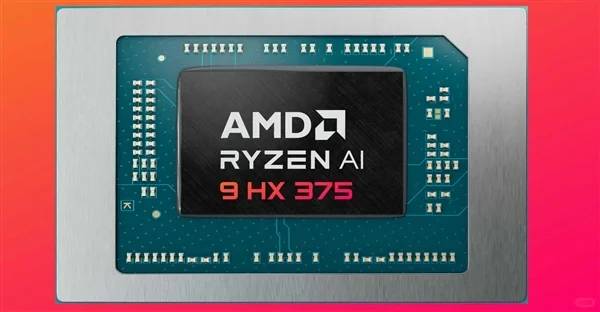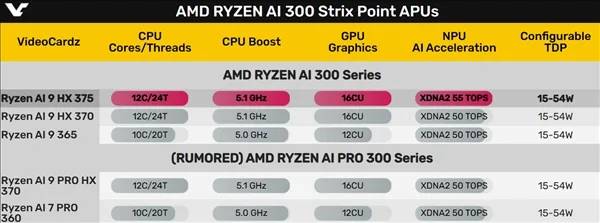AMD’s cutting-edge Zen5 architecture just got even more powerful with the surprise addition of a new flagship processor to its Ryzen AI 300 series lineup. While the initial launch featured only the Ryzen AI 9 HX 370 and Ryzen AI 9 365 models, eagle-eyed tech enthusiasts spotted a game-changing newcomer in AMD’s official product library: the Ryzen AI 9 HX 375.

This powerhouse processor clearly sits at the top of the food chain with impressive specs that will make any tech lover’s heart race:
– A formidable 12-core, 24-thread configuration combining 4 Zen5 and 8 Zen5c cores
– Massive 12MB L2 and 24MB L3 cache for blazing-fast performance
– Clock speeds that soar from a 2.

0GHz base up to an impressive 5.1GHz boost
– Next-gen Radeon 890M GPU packing 16 CU units with frequencies reaching 2.9GHz
– Flexible 28W default TDP that can be fine-tuned between 15-54W for optimal performance

The real showstopper? The upgraded NPU AI engine now delivers 55 TOPS – a 10% jump from its predecessors. When combined with CPU and GPU capabilities, this beast achieves a staggering 85 TOPS of total processing power.
Tech enthusiasts won’t have to wait long to experience this powerhouse in action. The first device confirmed to harness the Ryzen AI 9 HX 375’s potential is the sleek OmniBook Ultra 14-inch notebook, scheduled to hit the market this September.
The Ryzen AI 9 HX 375 sounds like a game-changer, especially with that extra 10% NPU performance boost. I’m curious to see how this will impact future laptop experiences, particularly for tasks that rely heavily on AI.
I’m really impressed by the 10% performance boost in NPU AI—it seems like AMD is pushing the boundaries of what we can expect from next-gen laptops. It’ll be interesting to see how this impacts real-world applications beyond just raw processing power.
Absolutely, that 10% improvement could make a noticeable difference in tasks like image recognition or natural language processing. It’s exciting to see AMD driving innovation in this space. Real-world benefits will likely show up in more intuitive software and faster workflows. Thanks for your insightful comment!
Wow, that 10% performance boost really sounds significant for AI tasks! I wonder how this will impact battery life on laptops though—any data on that?
Great question! While the 10% AI performance boost is exciting, battery impact can vary based on workload and system optimization. Manufacturers often balance power usage, but specific data would depend on individual laptop models. Thanks for asking—it’s a key consideration for anyone prioritizing battery life!